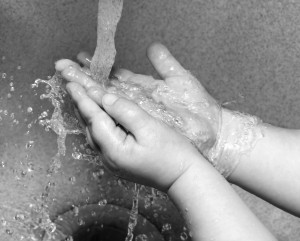
Obsessive Compulsive Disorder
 Obsessive-Compulsive Disorder (OCD) is characterized by (1) recurrent unwanted and intrusive thoughts or images, and/or (2) thoughts or behaviors that are completed to reduce the distress associated with recurrent unwanted thoughts and images. Most children and teens (90%) that have OCD have both obsessions (intrusive thoughts) and compulsions (ritualized behaviors aimed at reducing distress), even if it is difficult to recognize initially.
Obsessive-Compulsive Disorder (OCD) is characterized by (1) recurrent unwanted and intrusive thoughts or images, and/or (2) thoughts or behaviors that are completed to reduce the distress associated with recurrent unwanted thoughts and images. Most children and teens (90%) that have OCD have both obsessions (intrusive thoughts) and compulsions (ritualized behaviors aimed at reducing distress), even if it is difficult to recognize initially.
Common obsessions include: worry that one is dirty  or contaminated, feeling unsure that a task was completed or completed appropriately, being burdened by excessive and persistent doubt, experiencing persistent images that the child feels are unacceptable or bothersome, and feeling unease that things are just “not right” or ordered incorrectly.
or contaminated, feeling unsure that a task was completed or completed appropriately, being burdened by excessive and persistent doubt, experiencing persistent images that the child feels are unacceptable or bothersome, and feeling unease that things are just “not right” or ordered incorrectly.
Common compulsions include: excessive or repeated washing (hands, clothing, etc.), excessive or repeated checking to make sure that a task was or was not completed (making sure homework is in the backpack, checking that a light is on or off, etc.), seeking excessive or repeated reassurance from others that one’s fears will not come true (e.g., that a loved one will be safe, that their homework was completed, that the alarm is set correctly), or doing things or eating food in very particular and rigid orders or manners.
 When the obsessions or compulsions are time-consuming (>1 hour per day) or cause clinically significant distress or impairment, a diagnosis of OCD may be warranted.
When the obsessions or compulsions are time-consuming (>1 hour per day) or cause clinically significant distress or impairment, a diagnosis of OCD may be warranted.
OCD can be associated with considerable life impairment, reduced quality of life, and interference with family, school, and peer functioning. If you think your child may suffer from OCD, please call us at 305-348-7836, or email us at mint@fiu.edu. We can help!
 MINT
MINT
